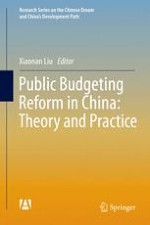2015 | OriginalPaper | Buchkapitel
5. A Constitutional Review of the Division of Fiscal Responsibilities Between Central and Local Governments
verfasst von : Liwan Wang
Erschienen in: Public Budgeting Reform in China: Theory and Practice
Verlag: Springer Berlin Heidelberg
Aktivieren Sie unsere intelligente Suche, um passende Fachinhalte oder Patente zu finden.
Wählen Sie Textabschnitte aus um mit Künstlicher Intelligenz passenden Patente zu finden. powered by
Markieren Sie Textabschnitte, um KI-gestützt weitere passende Inhalte zu finden. powered by
